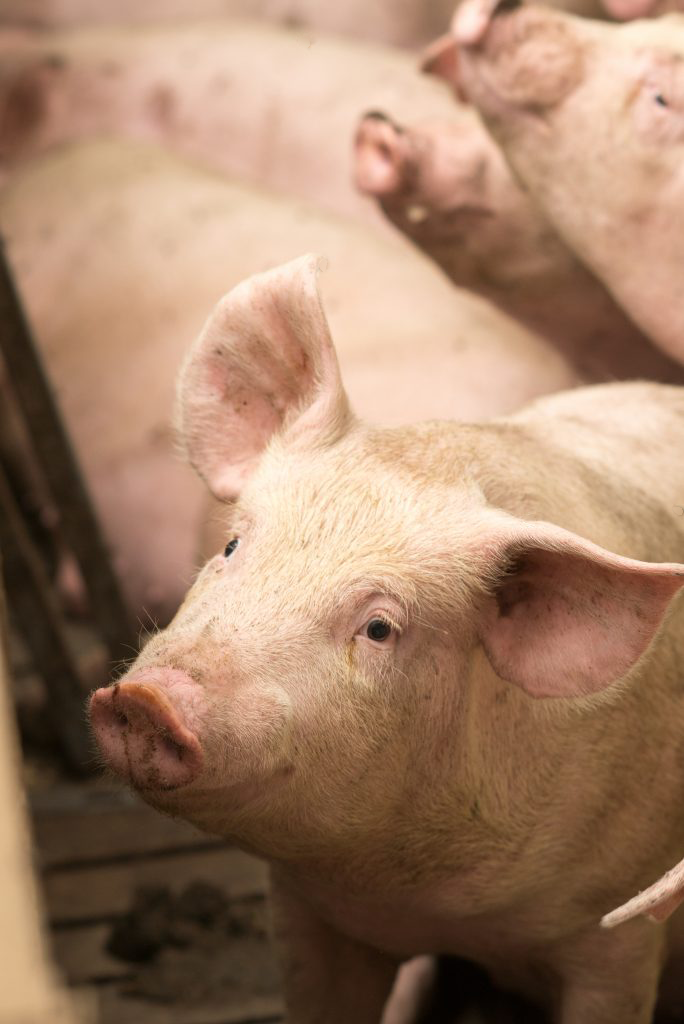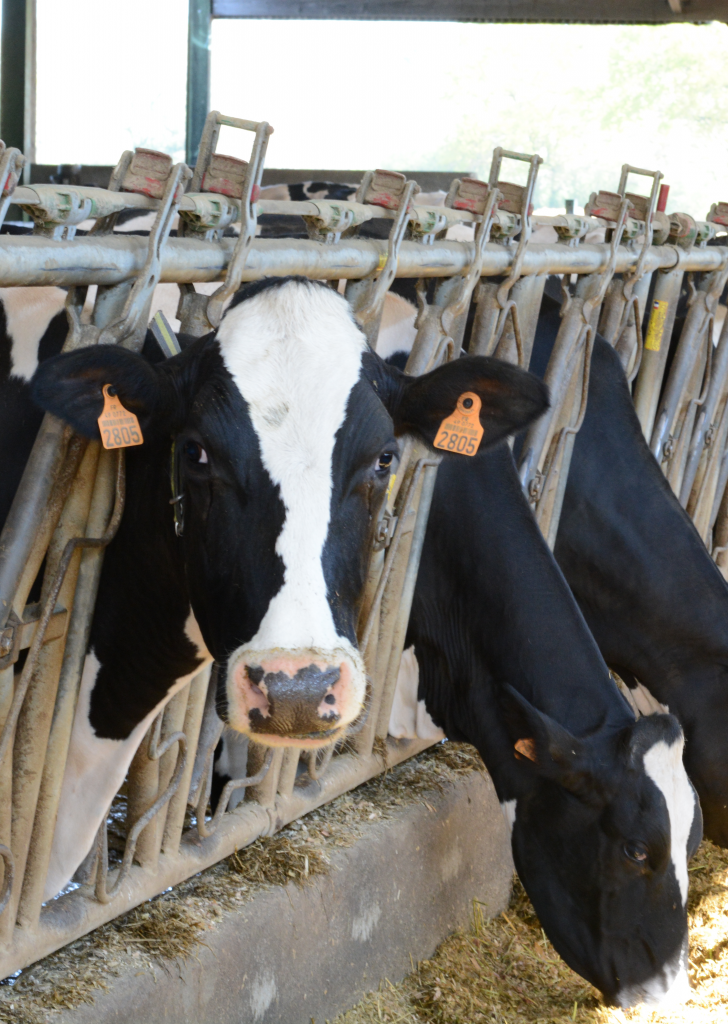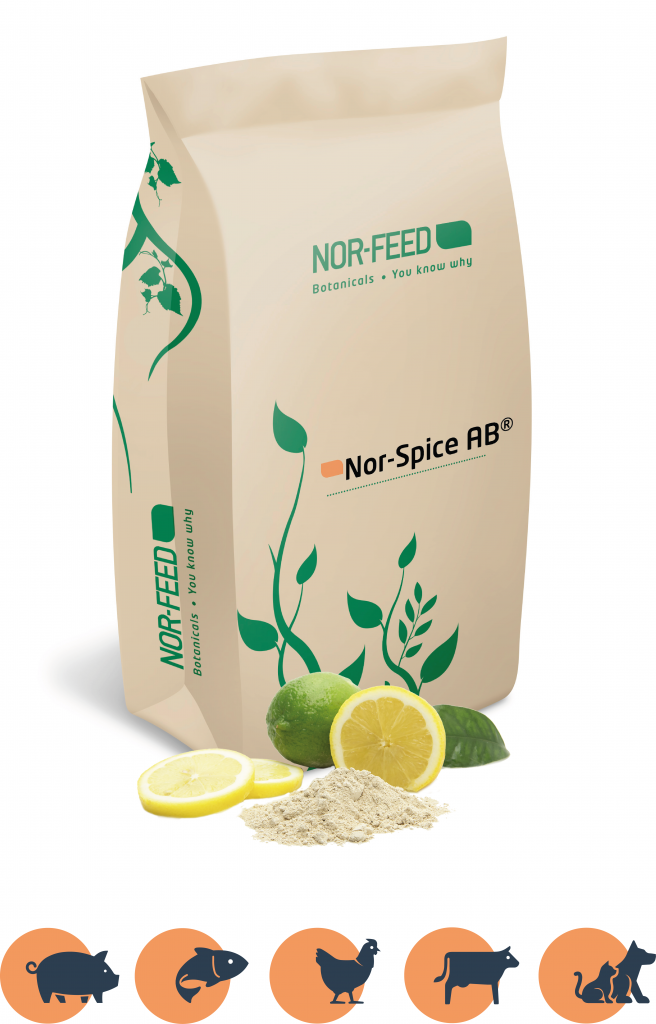Solutions
Challenges
Improve feed efficiency in livestocks

The importance of
Feed efficiency
Feed efficiency is the measure of the capacity of an animal to transform 1kg of feed ingested into a quantity of animal protein (meat, milk, egg). It is a technical and economic indicator of animal performance that the industry is continuously looking to improve.
Indeed, there are multiple benefits to improving feed efficiency. First of all, there is an economic benefit, since an animal with better feed efficiency will consume less raw materials and be as efficient as before, grow as fast or produce as much finished product. In other words, for the same volume of animal products sold, a better feed efficiency results in a lower quantity of feed necessary, therefore a reduction in production costs. Thus, better feed efficiency results in improved profitability for the farmer.
Another important benefit of improved feed efficiency is a reduced environmental impact. If the animal is more efficient in its feed intake, this translates into a decrease in the release of unabsorbed nutrients into the environment (nitrogen and phosphorus waste, etc.), which can hurt the environment when manure is spread for example. Finally, improved feed efficiency leads to a significant reduction in the amount of feed transported along the production chain to the farm and therefore a reduction in the transport footprint.
Finally, the third benefit is the food balance of the human/animal ecosystem on the distribution of arable land. Indeed, reducing the quantity of agricultural raw materials needed for animal feed leaves more agrarian space for human food. Both must be complementary and not in competition.
Good intestinal health
A lever to improve feed efficiency
Many levers exist today to improve feed efficiency, from genetics to precision nutrition and management in breeding. The solutions are numerous but must all be taken into account for optimal results. One of the solutions is to improve gut health since a disturbance in the integrity of the digestive system results in a decrease in nutrient absorption and a loss of feed efficiency. Gut health management is therefore essential, and with it, the management of the microbial flora plays a major role in intestinal integrity and digestion. Indeed, this intestinal flora helps to guarantee an optimal intestinal pH but also to provide vitamins B and K or some amino acids. It also optimizes the degradation of certain non-digestible fibres by the animal into SCFA (Short Chain Fatty Acids) such as butyrate, acetate or propionate. The latter contribute mainly to the energy intake of the animal but also stimulate the development of the intestinal villi, thus increasing the surface area for nutrient absorption.
The microbial ecosystem, which has been undermined for decades by the overuse of antibiotics, is now universally recognized as an essential pillar of good gut health. Consequently, the search for the ideal intestinal microbial profile is a priority to optimize dietary efficiency. Nevertheless, this ideal profile is utopian since animals will never have the same standards depending on their genetics, age, environment, or diet. However, certain bacterial floras have been described for many years as beneficial flora, for example, lactic acid bacteria such as Lactobacillus spp.
Some solutions have been shown to stimulate the development of these beneficial strains. This is the case with prebiotics, molecules that serve as nutrients for beneficial bacterial strains and thus modulate the microbial profile. These beneficial commensal bacteria will also put pressure on opportunistic pathogens via the phenomenon known as competitive exclusion. The scientific literature reveals, among other things, that citrus fruits contain components, such as citroflavonoids and pecto-oligosaccharides, which have a prebiotic effect. Therefore, the use of citrus extracts can result in better development of beneficial bacterial populations for the animal, reduced pathogenic pressure, stimulation of the development of the intestinal villi and an improvement of feed efficiency.


Our natural citrus extract to improve feed efficiency
Nor-Spice AB®
Nor-Spice AB® is a premixture of feed additives formulated from natural lemon extracts to stimulate the growth of lactic acid bacteria.




